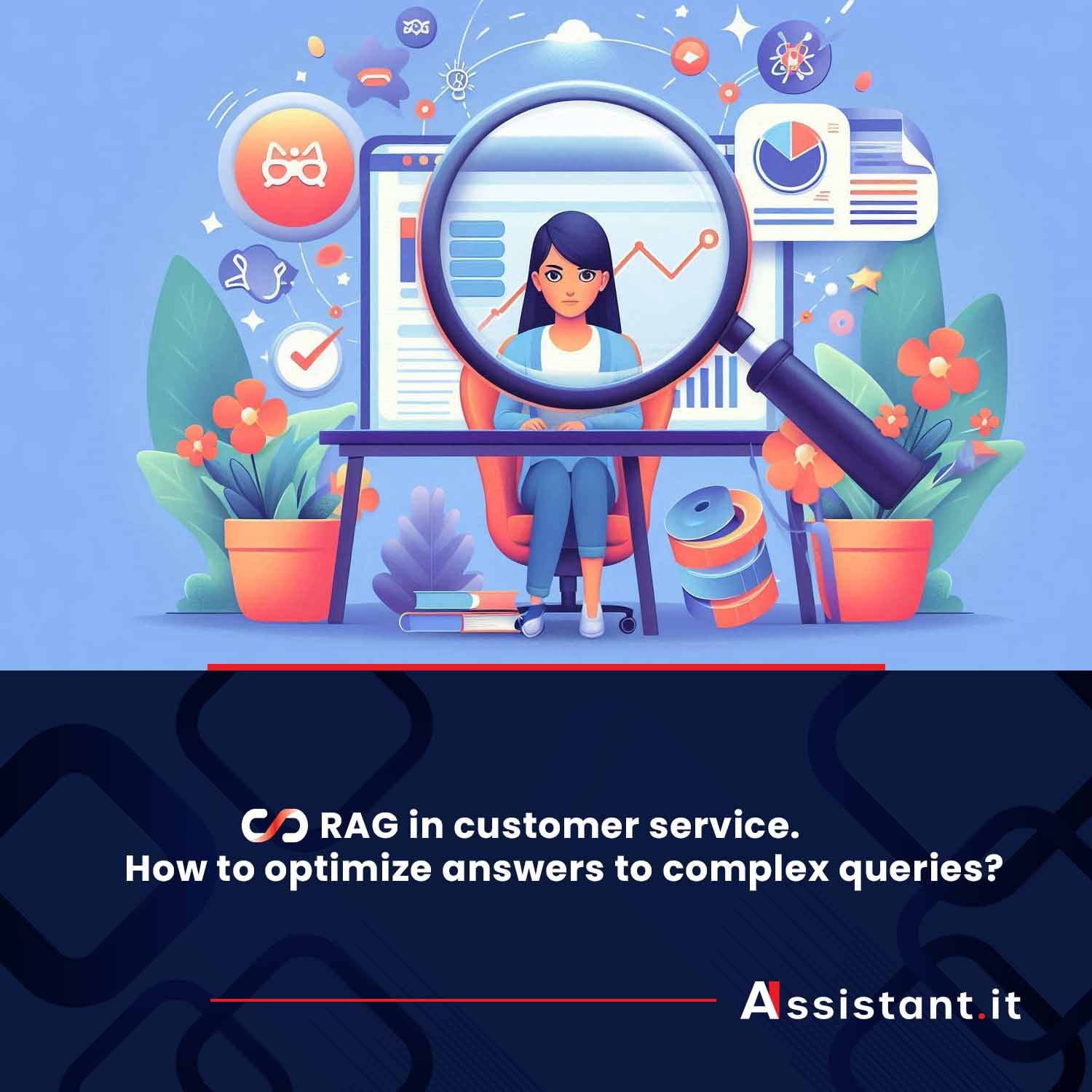In the digital era, customer service faces new challenges as an increasing number of inquiries involve complex and specific issues requiring precise and personalized responses. The development of advanced AI technologies, such as Retrieval-Augmented Generation (RAG), allows companies to effectively and quickly manage even the most complicated customer queries while improving operational efficiency and customer satisfaction.
Challenges in Handling Complex Customer Inquiries
Customer service teams often have to respond to inquiries that go beyond simple instructions or basic product information. This presents several challenges:
- Customers frequently ask about complex issues related to product functionality, troubleshooting, or service details.
- They expect responses tailored to their individual situation, requiring an understanding of their problem’s context.
- Responses must be both fast and precise to ensure customer satisfaction and avoid repeated inquiries.
This raises the question: How can RAG optimize responses to complex inquiries?
RAG, leveraging advanced language models such as LLMs, can understand the full context of a customer query, rather than just picking up on individual keywords. This is crucial when a customer describes an issue without using technical terminology.
Additionally, instead of relying solely on pre-trained data, RAG can dynamically retrieve external information to answer complex queries. For example, if a customer asks about the latest software version or a recently updated product, RAG can access technical documentation, discussion forums, and websites in real time to provide accurate responses.
Moreover, RAG allows for personalized responses based on the customer’s profile and query context. If a customer encounters an issue with a recently purchased product, the system can tailor the response by considering details such as the product model, warranty status, or service history. This results in more relevant answers, effectively addressing the customer’s problem and increasing satisfaction.
Crucially, RAG can integrate with internal CRM systems and knowledge bases, enabling real-time information management. When a customer submits a query, RAG not only generates a response but also updates customer data, helping build more detailed customer profiles and improving future interactions.
Benefits of RAG in Customer Service
Implementing RAG provides numerous advantages:
✅ Faster responses – Automating inquiry processing allows for instant replies, which is essential in customer service, where response time directly impacts satisfaction.
✅ Accurate and up-to-date answers – By retrieving real-time external data, RAG eliminates the risk of providing outdated or incorrect information. Even for complex questions, it ensures reliable and precise responses.
✅ Reduced workload for customer support agents – RAG automates simple and moderately complex inquiries, allowing human agents to focus on more critical, high-value problems.
✅ 24/7 customer support – RAG operates continuously, providing round-the-clock assistance, ensuring customers receive support at any time.
✅ Scalability without additional personnel – AI-driven automation enables businesses to handle a higher volume of inquiries without increasing staff, which is especially beneficial during peak customer activity periods.
Conclusion
RAG offers immense potential in optimizing responses to complex customer inquiries, providing precise, personalized, and up-to-date answers. By integrating RAG into customer service workflows, companies can increase efficiency, reduce response time, and enhance customer satisfaction.
However, successful RAG implementation requires careful preparation, including integration with existing systems and ensuring data security compliance to fully leverage the potential of this technology.
Discover how the AIssistant.it system can accelerate daily tasks and processes in your company with the help of AI tools: https://aissistant.it/contact/
Graphics by: Microsoft Designer AI


